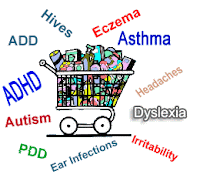
Teen Drug Use and Teen Drinking also known as Substance Abuse amongst teens and even children.
With today's society, kids have access to many different substances that can be addictive and damaging. If you suspect your child is using drugs or drinking alcohol, please seek help for them as soon as possible. Drug testing is helpful, but not always accurate. Teen Drug use and Teen Drinking may escalate to addiction.
We get calls constantly, that a child is only smoking pot. Unfortunately in most cases, marijuana can lead to more severe drugs, and marijuana is considered an illegal drug. Smoking marijuana is damaging to the child's body, brain and behavior. Even though marijuana is not considered a narcotic, most teens are very hooked on it. Many teens that are on prescribed medications such as Ritalin, Adderall, Strattera, Concerta, Zoloft, Prozac etc. are more at risk when mixing these medications with street drugs. It is critical you speak with your child about this and learn all the side effects. Educating your child on the potential harm may help them to understand the dangers involved in mixing prescription drugs with street drugs. Awareness is the first step to understanding.
Alcohol is not any different with today's teens. Like adults, some teens use the substances to escape their problems; however they don't realize that it is not an escape but rather a deep dark hole. Some teens use substances to "fit in" with the rest of their peers – teen peer pressure. This is when a child really needs to know that they don't need to "fit in" if it means hurting themselves. Using drug and alcohol is harming them. Especially if a teen is taking prescribed medication (refer to the above paragraph) teen drinking can be harmful. The combination can bring out the worse in a person. Communicating with your teen, as difficult as it can be, is one of the best tools we have. Even if you think they are not listening, we hope eventually they will hear you.
If your teen is experimenting with this, please step in and get proper help through local resources. If it has extended into an addiction, it is probably time for a Residential Placement. If you feel your child is only experimenting, it is wise to start precautions early. An informed parent is an educated parent. This can be your life jacket when and if you need the proper intervention. Always be prepared, it can save you from rash decisions later.
A teen that is just starting to experiment with substance use or starting to become difficult; a solid short term self growth program may be very beneficial for them. However keep in mind, if this behavior has been escalating over a length of time, the short term program may only serve as a temporary band-aid.
Drugs and Alcoholic usage is definitely a sign that your child needs help. Teen Drug Addiction and Teen Drinking is a serious problem in today’s society; if you suspect your child is using substances, especially if they are on prescribed medications, start seeking local help. If the local resources become exhausted, and you are still experiencing difficulties, it may be time for the next step; Therapeutic Boarding School or Residential Treatment Center.










